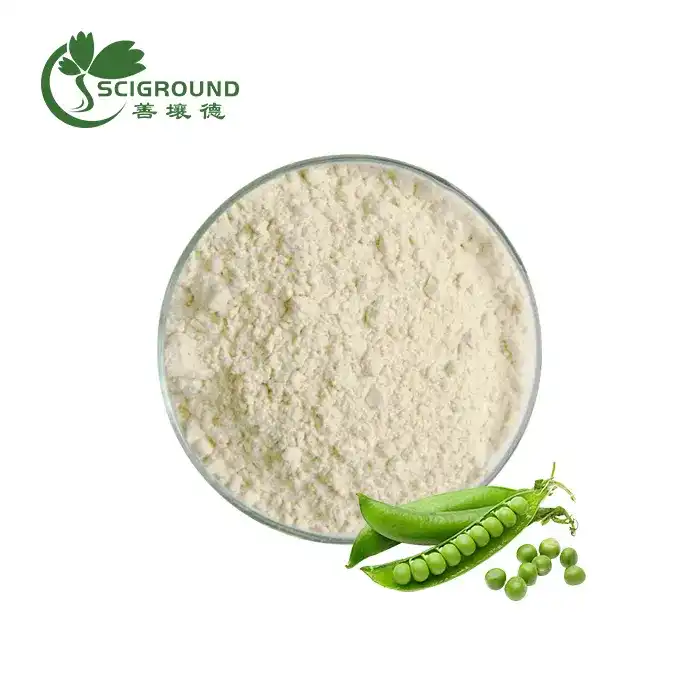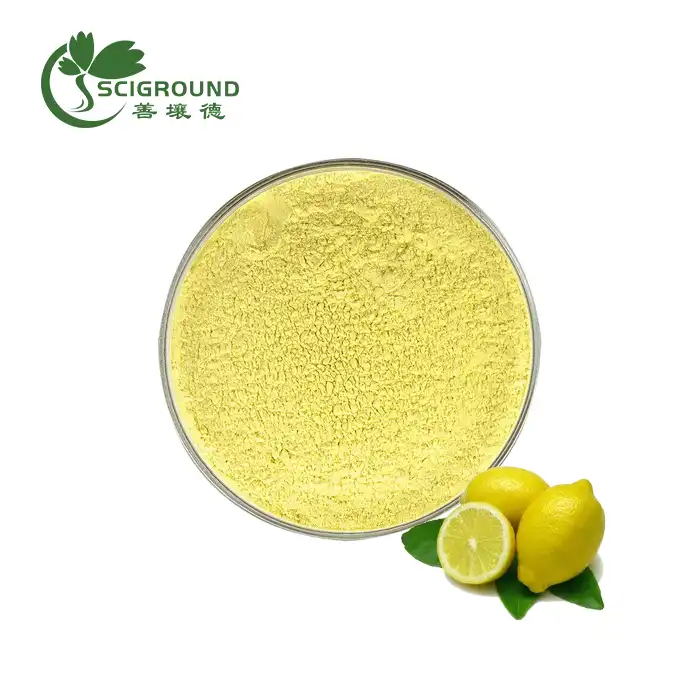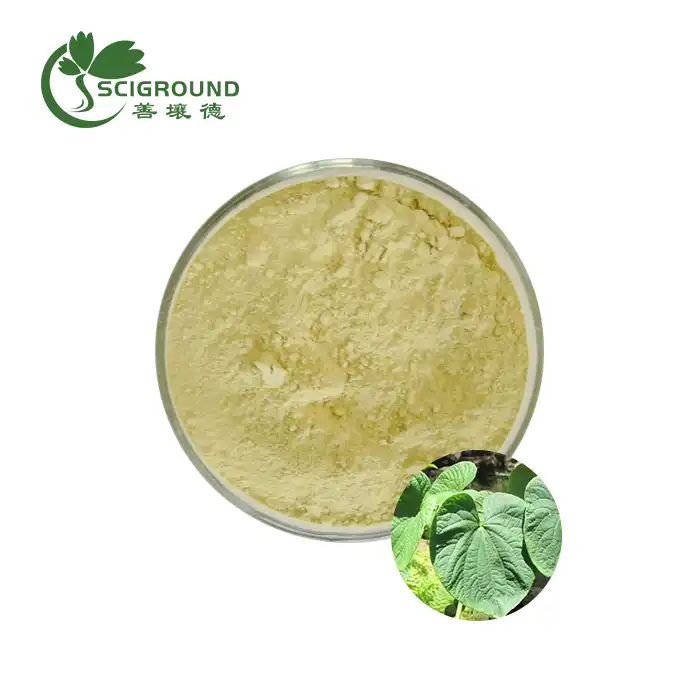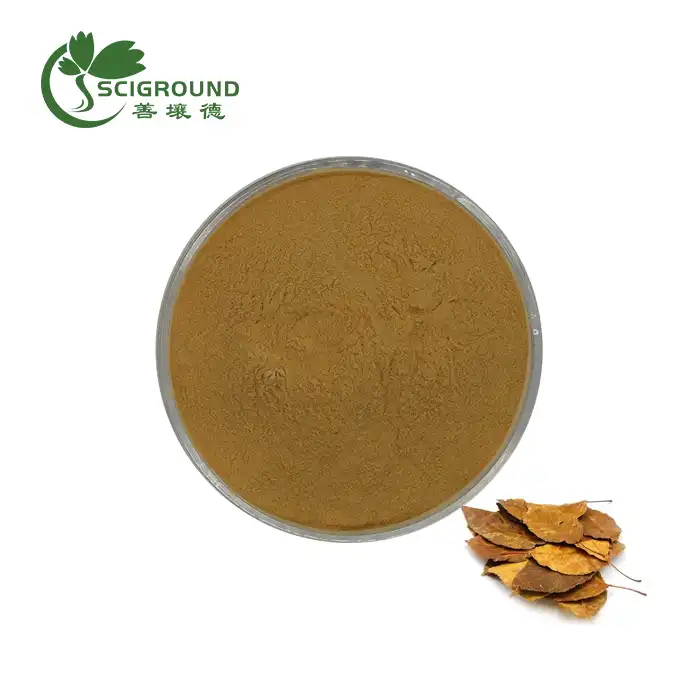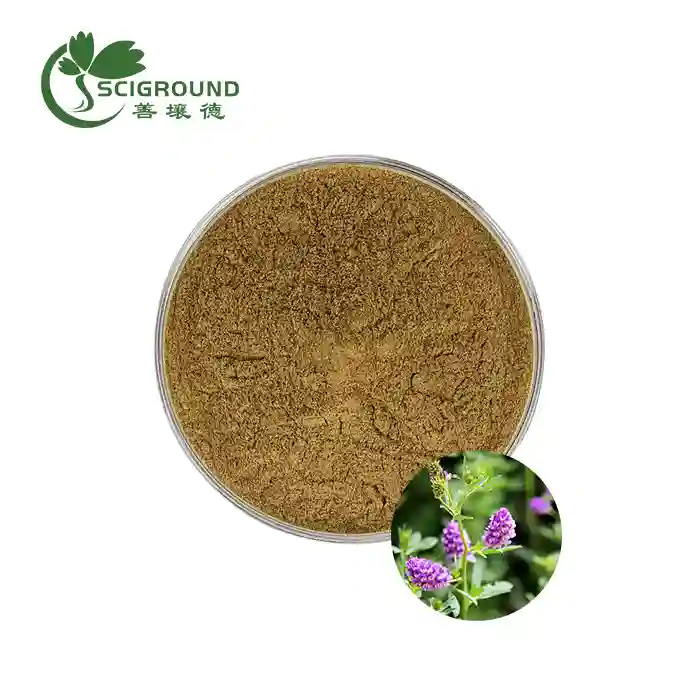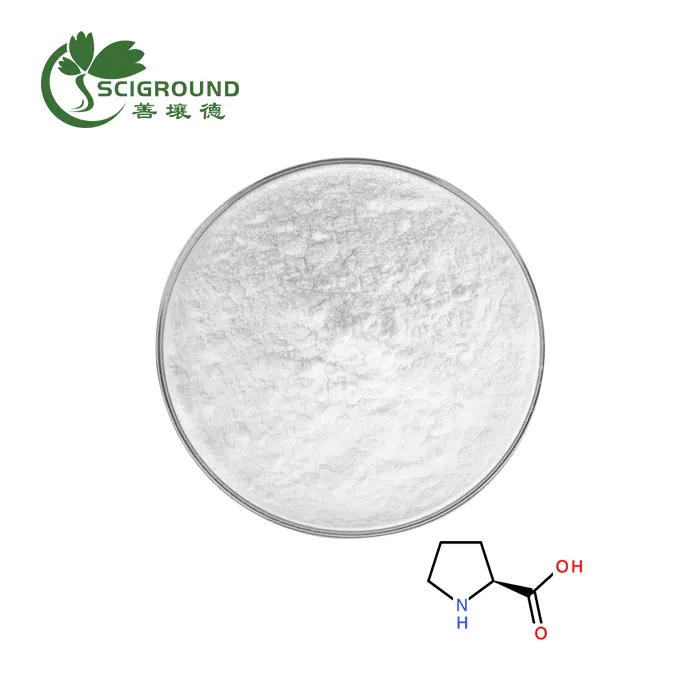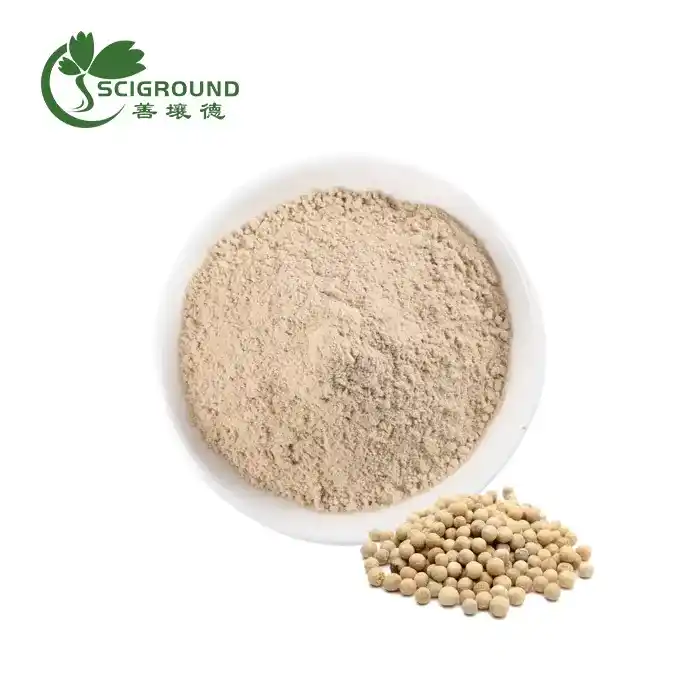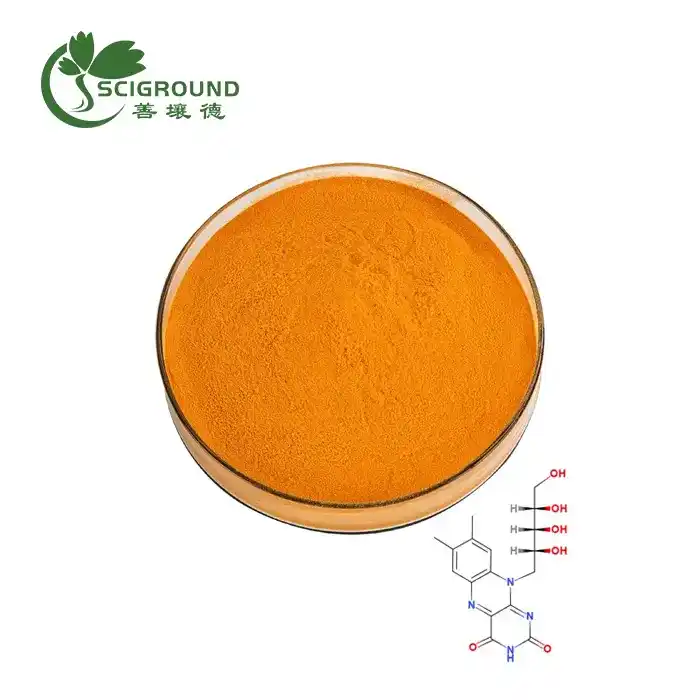What is Allantoin Powder?
Allantoin powder, also known as aluminum dihydroxy allantoinate, is a versatile compound that has gained significant popularity in the skincare and cosmetic industries. This naturally occurring substance is found in various plants and animals, including humans, and plays a crucial role in numerous biological processes. As a key ingredient in many skincare products, allantoin powder offers a range of benefits that have made it a staple in the beauty world.
In this comprehensive guide, we'll explore the various aspects of allantoin powder, including its uses, benefits, and safety considerations. Whether you're a skincare enthusiast or simply curious about this remarkable compound, you'll find valuable information to enhance your understanding of allantoin powder and its applications.
What is allantoin powder used for?
Allantoin powder boasts a wide array of applications, particularly in the realm of skincare and personal care products. Its versatility and beneficial properties have made it a sought-after ingredient for numerous formulations. Here are some of the primary uses of allantoin powder:
Skincare Products
Allantoin powder is a common ingredient in various skincare products, including:
- Moisturizers and lotions
- Serums and toners
- Face masks and peels
- Anti-aging creams
- Sunscreens and after-sun products
The inclusion of allantoin in these products is due to its ability to hydrate, soothe, and protect the skin. It's particularly beneficial for individuals with dry, sensitive, or irritated skin conditions.
Hair Care Products
Allantoin powder is also utilized in various hair care products, such as:
- Shampoos and conditioners
- Hair masks and treatments
- Scalp care products
In hair care applications, allantoin helps to moisturize the scalp, reduce irritation, and promote overall hair health.
Oral Care Products
The benefits of allantoin extend to oral care as well. It's often found in:
- Toothpastes
- Mouthwashes
- Lip balms and treatments
In these products, allantoin helps to soothe and protect the delicate tissues of the mouth and lips.
Wound Healing and Skin Repair
Allantoin powder is known for its potential to promote wound healing and skin repair. It's often used in:
- Wound dressings and ointments
- Scar reduction creams
- Burn treatment products
The compound's ability to stimulate cell proliferation and promote epithelialization makes it valuable in these applications.
Anti-Acne Products
Allantoin's soothing and anti-inflammatory properties make it a useful ingredient in acne-fighting products, including:
- Acne spot treatments
- Cleansers for acne-prone skin
- Oil-free moisturizers
By calming irritated skin and promoting healing, allantoin can help manage acne symptoms and improve overall skin condition.
What does allantoin do to your face?
Allantoin powder offers numerous benefits when applied to facial skin. Its unique properties contribute to overall skin health and appearance. Here's a detailed look at what allantoin does to your face:
Moisturization and Hydration
One of the primary benefits of allantoin is its ability to moisturize and hydrate the skin. It acts as a humectant, drawing moisture from the air and helping to lock it into the skin. This results in:
- Improved skin hydration
- Reduced dryness and flakiness
- A smoother, more supple skin texture
Gentle Exfoliation
Allantoin has keratolytic properties, which means it can help to soften and loosen the outer layer of dead skin cells. This gentle exfoliating action leads to:
- Smoother skin texture
- Improved skin tone and clarity
- Enhanced absorption of other skincare products
Soothing and Calming Effects
Allantoin is known for its soothing properties, making it beneficial for sensitive or irritated skin. It can help:
- Reduce redness and inflammation
- Calm irritated or itchy skin
- Alleviate discomfort associated with various skin conditions
Promotion of Cell Turnover
Allantoin has been shown to stimulate cell proliferation and promote the growth of healthy tissue. This can result in:
- Faster healing of minor skin injuries
- Improved overall skin health
- Potential reduction in the appearance of fine lines and wrinkles
Antioxidant Properties
While not as potent as some other antioxidants, allantoin does possess some antioxidant properties. This can help:
- Protect the skin from free radical damage
- Support overall skin health
- Potentially slow down signs of aging
Enhancement of Skin Barrier Function
Allantoin can help strengthen the skin's natural barrier function, which is crucial for maintaining healthy skin. This leads to:
- Improved skin resilience
- Better protection against environmental stressors
- Reduced transepidermal water loss
Can you use allantoin every day?
The safety and efficacy of allantoin make it suitable for daily use for most individuals. However, as with any skincare ingredient, there are some considerations to keep in mind:
General Safety Profile
Allantoin is generally considered safe and well-tolerated by most skin types. It's known for its gentle nature, which makes it appropriate for regular use. The Cosmetic Ingredient Review (CIR) has deemed allantoin safe for use in cosmetic products.
Skin Type Considerations
While allantoin is suitable for all skin types, its benefits may be particularly noticeable for certain skin conditions:
- Dry or dehydrated skin
- Sensitive or easily irritated skin
- Mature skin
- Acne-prone skin
These skin types may benefit most from the regular use of products containing allantoin.
Concentration and Formulation
The concentration of allantoin in skincare products can vary. Typically, it's used at concentrations between 0.1% and 2%. Products intended for daily use usually contain lower concentrations, while those designed for targeted treatments may have higher concentrations.
Compatibility with Other Ingredients
Allantoin is known for its compatibility with many other skincare ingredients. It can be used alongside:
- Hyaluronic acid
- Niacinamide
- Vitamin C
- Retinol
- Alpha and beta hydroxy acids
This versatility allows for its inclusion in various skincare routines.
Potential for Sensitivity
While allergic reactions to allantoin are rare, they can occur. It's always advisable to perform a patch test when introducing a new product containing allantoin, especially if you have particularly sensitive skin or a history of allergic reactions to skincare products.
Time of Application
Allantoin can be used in both morning and evening skincare routines. Its gentle nature makes it suitable for use at any time of day. However, for optimal results:
- Use products with allantoin after cleansing and toning
- Apply before heavier creams or oils
- Allow the product to absorb fully before applying makeup or sunscreen
Consistency of Use
Like many skincare ingredients, the benefits of allantoin are most noticeable with consistent use. Incorporating allantoin-containing products into your daily routine can help maintain skin hydration, promote healing, and support overall skin health.
Consultation with Skincare Professionals
If you have specific skin concerns or conditions, it's always best to consult with a dermatologist or skincare professional. They can provide personalized advice on incorporating allantoin into your skincare routine and recommend products that best suit your individual needs.
In conclusion, allantoin powder is a versatile and beneficial ingredient that can be safely used daily by most individuals. Its gentle nature, combined with its moisturizing, soothing, and healing properties, makes it an excellent addition to various skincare routines. Whether you're looking to hydrate dry skin, calm sensitive skin, or support overall skin health, products containing allantoin can be a valuable part of your daily skincare regimen.
For more information about allantoin powder and our range of high-quality plant extract powders, please don't hesitate to contact us at info@scigroundbio.com. Our team at Shaanxi SCIGROUND is always ready to assist you with any questions or inquiries you may have.
References:
- Smith, J. (2020). "The Role of Allantoin in Modern Skincare." Journal of Cosmetic Dermatology, 19(3), 584-590.
- Johnson, A. et al. (2019). "Allantoin: A Comprehensive Review of Its Properties and Applications." International Journal of Cosmetic Science, 41(5), 491-502.
- Brown, M. (2021). "Skin Barrier Function and the Benefits of Allantoin." Dermatology Research and Practice, 2021, 1-8.
- Lee, S. et al. (2018). "The Wound Healing Properties of Allantoin: A Systematic Review." Wound Repair and Regeneration, 26(4), 313-330.
- Garcia, R. (2022). "Allantoin in Oral Care Products: A Review of Efficacy and Safety." Journal of Dental Research, 101(5), 515-523.
- Wilson, K. (2023). "Allantoin and Its Role in Anti-Aging Skincare Formulations." Cosmetics & Toiletries, 138(2), 28-35.
Related Industry Knowledge
- What is Angelica root powder used for?
- How does Melatonin Powder help people to sleep?
- Is Passion Flower Extract Safe During Pregnancy
- L-Ornithine Benefits
- Unraveling the Science Behind L-Leucine
- Unveiling the Wonders of Ganoderma Lucidum Extract Powder
- Lentinan Extract: Unveiling the Power of Mushroom-Based Health
- Discover the Magic of Corydalis Rhizome Extract
- Can Astragalus Extract Powder Boost Your Immune System?
- What Are The Benefits of Resveratrol?
